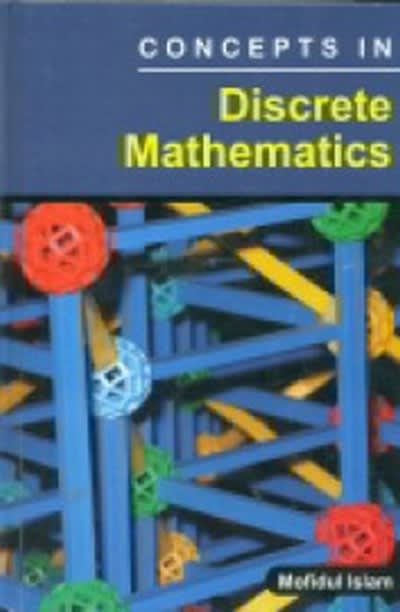Question
An article reported the results of a peer tutoring program to help children learn to read. In the experiment, the children were randomly divided into
An article reported the results of a peer tutoring program to help children learn to read. In the experiment, the children were randomly divided into two groups: the experimental group received peer tutoring along with regular instruction, and the control group received regular instruction with no peer tutoring. There weren1=n2= 30children in each group. The Gates-MacGintie Reading Test was given to both groups before instruction began. For the experimental group, the mean score on the vocabulary portion of the test wasx1=344.5,with sample standard deviations1=49.7.For the control group, the mean score on the same test wasx2=353.8,with sample standard deviations2=50.9.
(a) State the null and alternate hypotheses.
H0:1=2;H1:1>2
H0:1=2;H1:12
H0:1=2;H1:1<2
H0:12;H1:1=2
(b) What sampling distribution will you use? What assumptions are you making?
- The standard normal. Both sample sizes are large with known standard deviations.
- The Student'st. Both sample sizes are large with known standard deviations.
- The Student'st. Both sample sizes are large with unknown standard deviations.
- The standard normal. Both sample sizes are large with unknown standard deviations.
(c) What is the value of the sample test statistic? Compute the correspondingzortvalue as appropriate. (Test the difference12.Round your answer to three decimal places.)
(d) Find (or estimate) theP-value.
- P-value > 0.500
- 0.250 <P-value < 0.500
- 0.100 <P-value < 0.250
- 0.050 <P-value < 0.100
- 0.010 <P-value < 0.050
- P-value < 0.010
(e) Sketch the sampling distribution and show the area corresponding to theP-value.
(f) Based on your answers in parts (i)(iii), will you reject or fail to reject the null hypothesis? Are the data statistically significant at level?
- At the= 0.05 level, we fail to reject the null hypothesis and conclude the data are statistically significant.
- At the= 0.05 level, we reject the null hypothesis and conclude the data are not statistically significant.
- At the= 0.05 level, we fail to reject the null hypothesis and conclude the data are not statistically significant.
- At the= 0.05 level, we reject the null hypothesis and conclude the data are statistically significant.
(g) Interpret your conclusion in the context of the application.
- Fail to reject the null hypothesis, there is sufficient evidence that there is a difference in mean vocabulary scores between the control and experimental groups.
- Fail to reject the null hypothesis, there is insufficient evidence that there is a difference in mean vocabulary scores between the control and experimental groups.
- Reject the null hypothesis, there is insufficient evidence that there is a difference in mean vocabulary scores between the control and experimental groups.
- Reject the null hypothesis, there is sufficient evidence that there is a difference in mean vocabulary scores between the control and experimental groups.
(h) Find a 95% confidence interval for12.
(Round your answers to two decimal places.)
- lower limit=
- upper limit=
(i) Explain the meaning of the confidence interval in the context of the problem.
- Because the interval contains only positive numbers, this indicates that at the 95% confidence level, the population mean score for the experimental group is higher than for the control group.
- Because the interval contains both positive and negative numbers, this indicates that at the 95% confidence level, we cannot say that the population mean scores are different before any instruction began.
- Because the interval contains both positive and negative numbers, this indicates that at the 95% confidence level, the population mean score for the experimental group is higher than for the control group.
- Because the interval contains only negative numbers, this indicates that at the 95% confidence level, the population mean score for the experimental group is lower than for the control group.
Step by Step Solution
There are 3 Steps involved in it
Step: 1

Get Instant Access to Expert-Tailored Solutions
See step-by-step solutions with expert insights and AI powered tools for academic success
Step: 2

Step: 3

Ace Your Homework with AI
Get the answers you need in no time with our AI-driven, step-by-step assistance
Get Started


